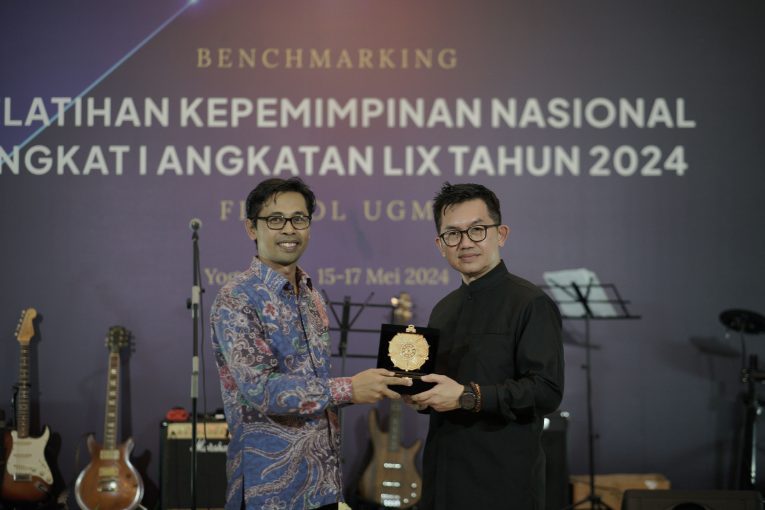
The Dean of the Faculty of Social and Political Sciences UGM, Dr. Wawan Mas’udi, S.IP., MPA, Ph.D. expressed his concern about the challenges facing Indonesia. “We are faced with extraordinary changes that we may never have imagined. We at the university are also trying to understand what the changes we are experiencing are about. Then what are the implications, not only for education, but also society,” he explained. The Faculty of Social and Political Sciences UGM specifically focuses this discourse into three things, namely climate change, digital transformation, and social inclusion. These three challenges are the main priorities in formulating national development strategies towards the Golden Indonesia 2045.
In line with this, the Head of the State Administration Agency of the Republic of Indonesia, Muhammad Taufiq, DEA also expressed the same vision. “We are together facing change. This country faces tough challenges, so we need great people to face them. We at LAN believe that leadership is built. Our competence must be changed, including in our leadership,” he said. The cooperation between LAN and the Faculty of Social and Political Sciences UGM is considered a good start to unite various sectors in facing national issues.
The two-day PKN Level I was opened with a Gala Dinner at Balairung UGM on Wednesday (15/5) evening. The next day, participants underwent a series of training in two sessions with UGM lecturers and researchers. The first session themed “Technology and Future Needs” was presented by Dr. Nurhadi Susanto, S.H., M.Hum., Vice Dean for Finance, Assets and Human Resources of Faculty of Social and Political Sciences UGM, and Widyawan, S.T., M.Sc., Ph.D., Lecturer of Electrical Engineering UGM. Meanwhile, the second session entitled “Geopolitics and Public Policy” was presented by the Vice Dean for Academic and Student Affairs of Faculty of Social and Political Sciences UGM, Prof. Dr. Poppy Sulistyaning Winanti, S.IP., M.PP., and Doddy Aditya Iskandar, S.T., MCP, Ph.D from Faculty of Engineering UGM.
The substance of the training materials is specifically designed to elaborate on the current technological developments and climate change. The government’s readiness to face these two issues is the main key to maintaining national stability, especially in the economic, food and social fields. Future skills competencies, such as mastery of technology and international political conditions, must not only be understood, but also be able to be implemented in government strategic policies.
